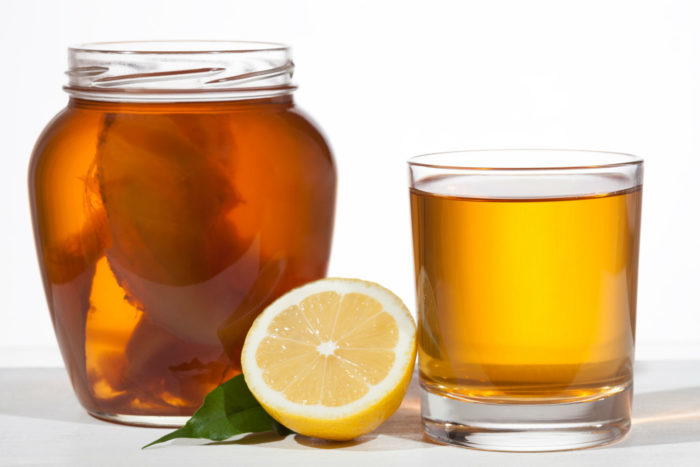
Class Action Suit Targets Kombucha Products for False Advertising

Asreportedin Legal News Line by Food Navigator, a consumer has filed a complaint in the U.S. District Court for the Northern District of California against Health-Ade Zombucha and Whole Foods Market California Inc. The plaintiff alleges that she and numerous consumers purchased the beverages based on advertisements that they were non-alcoholic. The plaintiff alleges the beverages contain more than twice the alcohol allowed for nonalcoholic beverages, and that its sugar content is understated. Health-Ade told Food Navigator it was unable to comment on pending litigation.
And according to astatementfrom Top Class Actions, other zombucha beverages are falsely advertising that they contain less probiotics and also have more sugar than is represented on their labels - in one case, product testing reportedly demonstrated that one brand of kombucha included between four and six times the amount of sugar than was stated on the product label.
Top Class Action is urging consumers who have purchased zombucha in the last four years based on faulty claims to sign up for a free class action investigation on their web site.
This isn’t the first time the popular beverage has been the subject of a lawsuit.
Last year, the manufacturer of GT’s Kombucha and Whole Foods Market reached an $8.2 million class action settlement over allegedly false claims that GT’s Kombucha was non-alcoholic and that it contained antioxidants. The defendants did not admit wrongdoing in agreeing to the settlement. In addition to the financial restitution, the settlement required Millennium Products Inc., the Beverly Hills, Calif.-based parent company of GT’s, to make changes to its product labels, specifically, to cease using the term “antioxidant” on packaging, as well as include warning that the product does contain alcohol, asreportedin BevNet. Millennium agreed to ensure that the product’s accurate sugar content was reflected on labels as well.
And in October 2017, afalse advertising class action lawsuitwas filed against KeVita Inc. and Pepsico Inc. over allegations they deceived consumers into believing KeVita kombucha is a raw and unpasteurized product even though they are actually pasteurized after fermentation.
Misleading nutrition labels have taken center stage since the FDA announced redesigned food nutrition labels earlier this month. It was the first time in decades the labels had undergone changes. Asreportedby WholeFoods Magazine, the new food labels now have an additional space for added sugars. While the old labels list total grams of sugars, they don’t distinguish between sugars that are naturally occurring in foods like fruits and vegetables, and sugars that meet the definition of added sugars. The new labels now include added sugars in grams and as percent Daily Value. “Added sugars” are regarded as worse than sugars occurring naturally in products like fruit.
Kombucha has been around for centuries but has become popular among health-conscious consumers in recent years. The beverage is derived from sweetened black or green tea that is mixed with a symbiotic colony of bacteria and yeast known as a SCOBY and given time to ferment. Kombucha is effervescent, tart and slightly sweet, with a flavor profile similar to sparkling apple cider.
During the fermentation process, a large number of healthy bacteria known as probiotics develop in the product. Probiotics are touted for their purported health benefits, such as fighting illness and infection.
The fermentation process often causes the alcohol content of kombucha to rise above 0.5 percent, causing most products on the market to be regulated by the Alcohol Tobacco Tax and Trade Bureau.

The editorial team at WholeFoods Magazine has decades of experiences reporting on natural products industry news, trends, and more. This national, monthly business-to-business magazine has been published continuously for nearly 40 years (the magazine was founded in 1977, and has been owned by Wainer Finest Communications since 1984). It is the longest-tenured media outlet of its kind in the natural products industry. The editorial focus at WholeFoods Magazine is, and always has been, on informing and educating members of the natural products industry.
The Magazine
Information
About Us
NOTE: WholeFoods Magazine is a business-to-business publication. Information on this site should not be considered medical advice or a way to diagnose or treat any disease or illness. Always seek the advice of a medical professional before making lifestyle changes, including taking a dietary supplement. The opinions expressed by contributors and experts quoted in articles are not necessarily those of the publisher or editors of WholeFoods.







